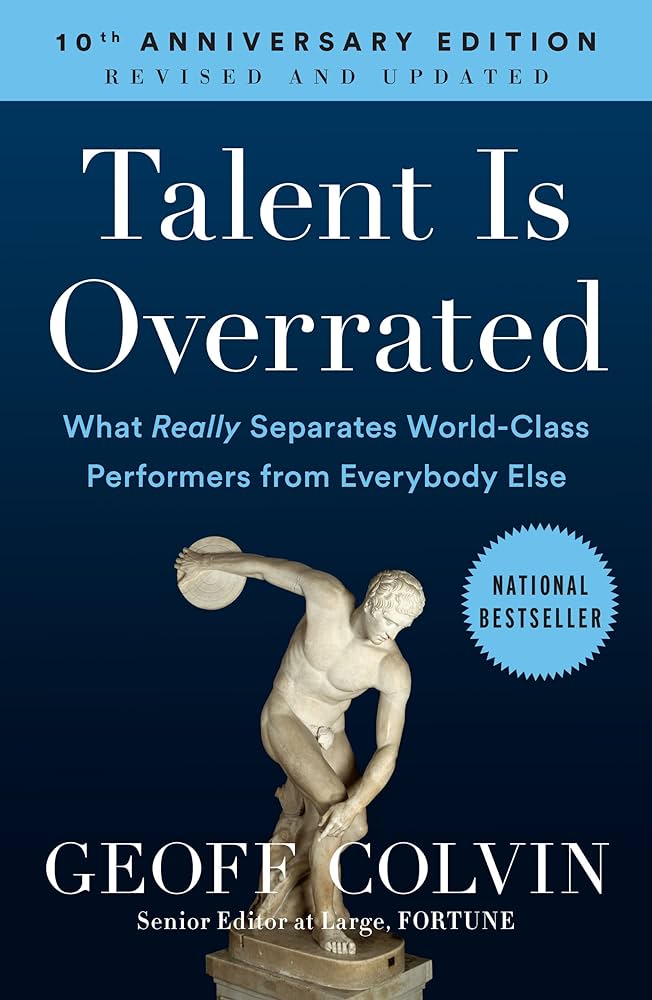Is talent overrated? – StartupSmart
As anyone who has started up a business will tell you, going it alone usually involves a moment of inspiration followed by plenty of perspiration. But are some entrepreneurs naturally more gifted than others?
The book Talent is Overrated, by Geoff Colvin, analyses great performers from all fields and examines how much of a part talent played in their success.
In examining the greats, the book highlights that very few of them were born with any real degree of talent.
For example, Mozart was born to a father who was a professional music composer and an expert in teaching music, particularly to young men.
Tiger Woods was born to a professional golfer who also studied the most effective strategies for training young men. Before Tiger could walk, his father would take him to the garage, sit him in his high chair and start to hit golf balls in to a net as the young boy looked on, transfixed. “It was as if he was watching a movie,” Tiger’s father said.
The premise of the book is that talent, a natural aptitude in a specific field, does exist, yet when it comes to being great in a particular field, it is irrelevant.
So what makes all the difference?
Francis Galton, who authored the 1869 book Hereditary Genius, coined the term “nature versus nurture”.
Galton argued that people had innate limits to what they could achieve in life. Regardless of the work they put in, he contended, they would never break past these predetermined boundaries.
According to Galton, budding entrepreneurs should “find true moral repose in an honest conviction that he is engaged in as much good work as his nature rendered him capable of performing.” In other words, give up and be content.
This explains a lot of the thought patterns in our culture that surround great performers and the notion that they operate at an unattainable level. You either have it or you don’t.
Hundreds of studies have been done on the subject since Galton’s book. They showed how employees’ performance plateaued for years, seemingly hitting their “rigidly determinate natural limits”, only to a see a consistent improvement in performance after new incentives were offered.
In his now famous paper, ‘The Role of Deliberate Practice in the Acquisition of Expert Performance’, scholar Anders Ericsson concludes that “the search for stable heritable characteristics that could predict or at least account for superior performance…has been surprisingly unsuccessful.”
Which means that, following countless case studies, researchers have found no relationship between natural talent and great performance.
However, at the time of this paper, “natural talent” was still the favoured theory when it came to high achievers.
As the authors of the paper put it: “The conviction in the importance of talent appears to be based on the insufficiency of alternative hypothesis.”
People believed in ‘talent’ because they didn’t have an alternative. Until now.
Recent research indicates that the number one determinant when looking at the greats is what has become known as ‘deliberate practice’.
This is not the same as saying ‘experience matters’. Often people who have ’20 years’ experience’ are found to be performing at a lesser standard to those that have been in a particular field for five years.
Experience alone does not make the difference. Practice alone will not make you great.
For example, you may go to the driving range and hit golf balls for an hour, going through the motions, making your way through the irons and eventually getting to the drivers.
However, if there isn’t specific concentration and thought going into every stroke and it is simply a form of entertainment, this doesn’t constitute deliberate practice.
The same applied to people that have been in the same industry for 20 years. If they haven’t been constantly learning more, seeking feedback and bettering their approach, they may not have 20 years experience but rather one year’s experience repeated twenty times.
Deliberate practice has been found to encompass five characteristics:

